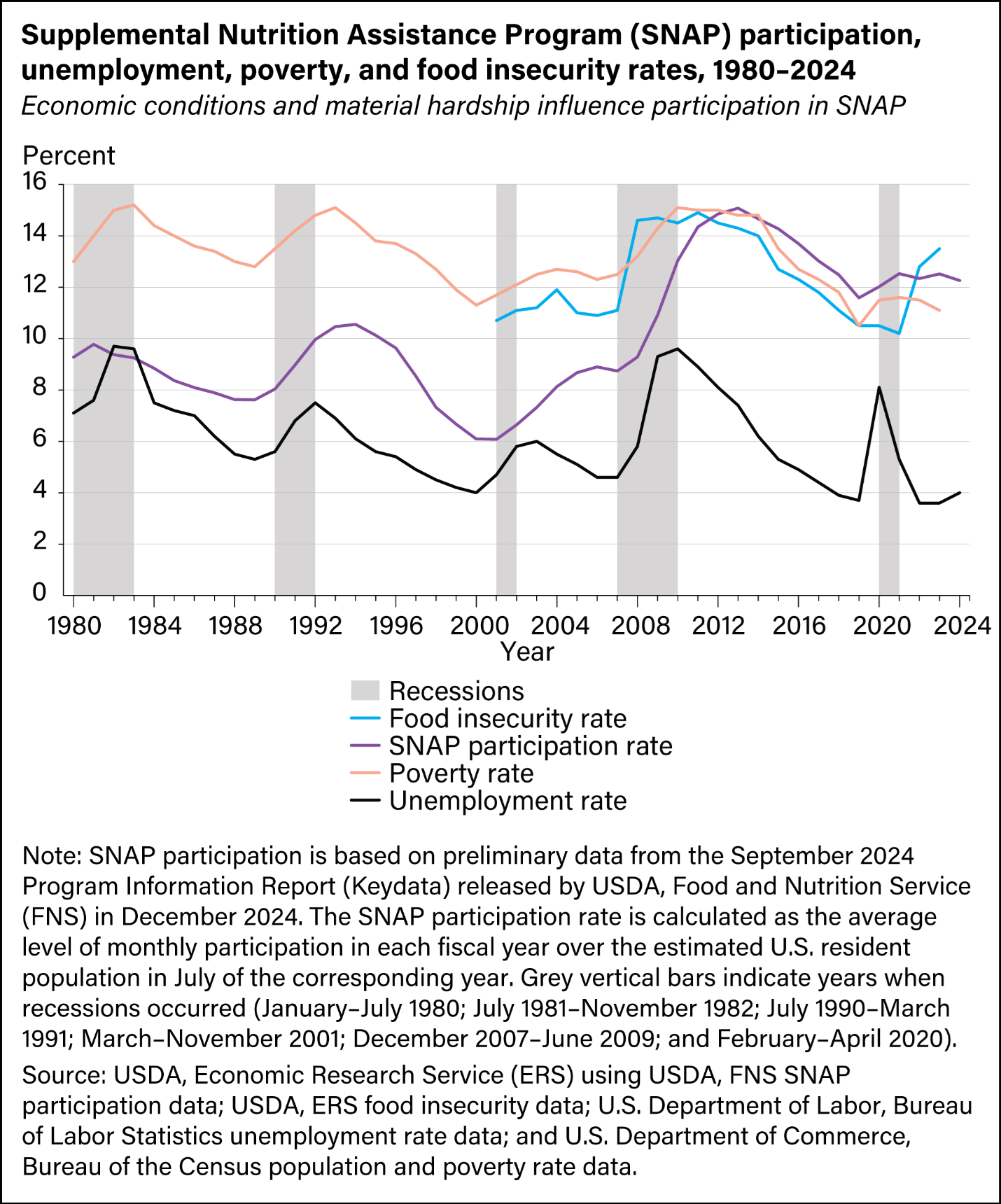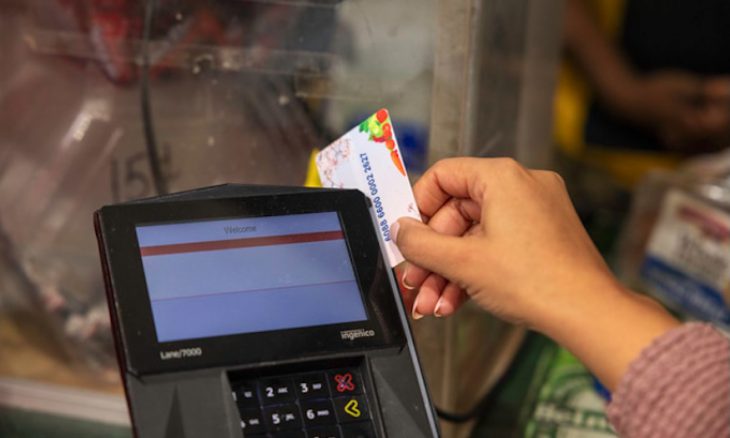Government aid shapes communities, local economies, and everyday lives.
PRAY FIRST for God to direct and guide our leaders to craft compassionate policies that protect and uphold the dignity of all those in need.
Thus says the Lord of hosts, Render true judgments, show kindness and mercy to one another. Zechariah 7:9
What role does federal aid play in shaping the everyday lives of Americans, and how far does its reach truly extend? Federal assistance programs are more than government policies as they can be lifelines during difficult seasons. Whether it is to help with groceries, healthcare, or housing, these programs quietly support millions of households every year.
Programs like the Supplemental Nutrition Assistance Program (SNAP), Medicaid, and housing assistance collectively make up a significant portion of the federal budget. According to the Congressional Budget Office (2024), Medicaid alone accounted for roughly $546 billion in federal spending in 2023. SNAP followed with about $119 billion, while housing assistance programs such as Section 8 totaled nearly $80 billion.
Local governments act as intermediaries to distribute this aid. State and municipal agencies often administer programs through local offices, nonprofit partnerships, and public health initiatives. For example, cities manage Community Development Block Grants (CDBG) to fund affordable housing and community infrastructure, ensuring federal dollars are directed toward localized needs.
Personal Impact: Lives Touched by Aid
Behind these statistics are real people facing complex challenges. For example, federal housing programs could assist someone struggling to secure safe housing after job loss, while SNAP benefits often support families recovering from disasters like hurricanes and wildfires. Situations like these illustrate how federal aid can serve as a necessary lifeline during personal or community hardship.
Accessing aid, however, is not always simple. Many applicants face complex eligibility requirements and long wait times. Misconceptions also abound. A 2023 Pew Research Center survey found that nearly half of Americans believe most SNAP recipients are unemployed, though only 21% have no income. Most non-disabled recipients must meet state work or training requirements, accept suitable job offers, and work at least 30 hours per week to continue receiving the benefits. The Economic Research Service (ERS), a part of the U.S. Department of Agriculture, lists SNAP as an automatic economic stabilizer—expanding during downturns to support more low-income households and contracting as the economy improves. Participation and spending typically rise with unemployment and poverty rates, then decline during recoveries.

Broader Economic and Social Effects
Federal aid also plays a stabilizing role in the national economy, particularly during crises. During the COVID-19 pandemic, emergency programs such as expanded unemployment benefits and stimulus payments helped prevent millions from falling into poverty. Local economies also benefit from federal aid, as these funds are often spent on essentials like groceries, rent, and healthcare.
Long-term programs like Medicaid and education grants can improve health outcomes and expand access to higher education, supporting both individual advancement and community development.
Despite its benefits, federal aid is not without challenges. Applicants often face confusing paperwork, comprehension barriers, or limited access to technology. Rural areas and minority communities can encounter additional obstacles from underfunded local agencies due to geographic isolation.
Additionally, some Americans feel that federal programs are unfair or unsustainable. Critics argue that aid discourages work, though studies generally find modest or negligible effects on employment. Public sentiment often reflects deeper political divides rather than practical realities. The ERS evaluates programs like SNAP through participation outcomes, including that post-SNAP beneficiaries had reduced food insecurity and the depth and severity of poverty, especially among children.
Federal aid has evolved significantly over time. Major expansions occurred during the Great Depression and again in the 1960s with the War on Poverty. In more recent history, crises such as the 2008 recession and the COVID-19 pandemic prompted sharp increases in federal spending.
Experts now suggest reforms to simplify applications and reduce bureaucratic delays. Others highlight emerging needs tied to shifts in climate, such as disaster relief programs for areas repeatedly hit by floods or wildfires.
Generational changes are also underway. Younger Americans may face more frequent economic disruptions and are projected to rely more heavily on aid than previous generations, and their future feels less certain than ever.
Why It Matters and How We Can Respond
Scripture consistently calls us to care for our communities and extend compassion to those facing hardship. Romans 12:13 says, “Contribute to the needs of the saints and seek to show hospitality.” Many families live on the edge of financial insecurity. Those whose lives depend on charity and the kindness of others should receive empathy and thoughtful attention. Just as the heart of Jesus was to seek and save the lost, to heal the broken-hearted, to feed the hungry, clothe the poor, and heal the sick, so too must we follow Christ’s example. Prayerfully lift up those who work within these programs that support and distribute help to those who need it the most. Pay taxes as Jesus commanded, so that those taxes will help fund programs that help the hurting. Vote for local, state, and federal leaders who actively seek ways to live and act as Christ would have acted on Earth. Lastly, seek ways to tangibly care for those in your local sphere of influence, whether that be your direct neighbors, through church programs, or those in your local community.
HOW THEN SHOULD WE PRAY:
— Pray for wisdom for government leaders and policymakers as they make decisions affecting those in need. Commit your work to the Lord, and your plans will be established. Proverbs 16:3
— Pray for all Americans to remain thankful for provision and willing to share with others. As for the rich in this present age, charge them not to be haughty… to be rich in good works, to be generous and ready to share. 1 Timothy 6:17-18
CONSIDER THESE ITEMS FOR PRAYER:
- Pray for those in government to see for ways to simplify aid programs and minimize bureaucratic barriers to efficiently help those most in need.
- Pray for communities to build resilience and support alongside federal assistance.
- Pray for those in office to seek God’s will with humility and discernment in public debates about aid.
Sources: Brookings.edu, Center on Budget and Policy, Urban Institute, Pew Research Center, Congressional Budget Office









